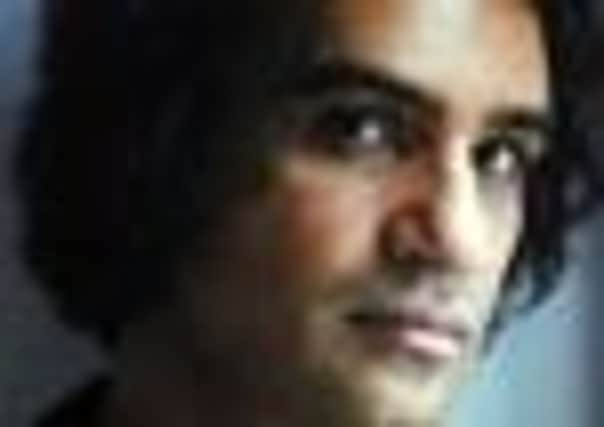Self-taught author compelled to write


It took Nadeem Aslam four-and-a-half-years to write his latset novel, The Blind Man’s Garden which, for him, was a positive sprint, especially when you consider that his second novel, the multi-award winning Maps for Lost Lovers, was 11 years in the writing.
What’s happened to speed up the artistic process? He’s finished his schooling.
Advertisement
Hide AdAdvertisement
Hide AdThe 46-year-old novelist arrived in England when he was 14. His father, a communist, was exiled from his native Pakistan for his political beliefs and relocated the family to Huddersfield.
“When I came here I had no English, so the subjects I did well in were the sciences because with those subjects all you have to do is assimilate facts and if you write in inelegant English, it doesn’t really matter,” says Aslam.
The irony is that he pursued the sciences – studying biochemistry at Manchester University, and yet the novels he has gone on to produce are so weighted by stunning prose, it is hard to imagine him writing with anything other than total elegance.
At university, in his final year, Aslam decided to drop out and never completed his degree. Lots of people want to be writers, but for Aslam it was clearly something far greater than a desire – he speaks as though he literally had no choice in the matter.
Advertisement
Hide AdAdvertisement
Hide Ad“I never wanted to be a writer, I wanted to write,” he says.
After dropping out of university, he gave in to the compulsion. His life sounds barely credible. He worked as an usher in a cinema, a bin man, on building sites. When he had saved enough money to survive for a couple of months, he would give up work and sit in his office for 10, 11, 12 hours each day writing and reading.
“I read Naipul, Lawrence, Tolstoy, Nabokov, Zola, Conrad, and I wrote. Wrote constantly,” says Aslam.
“That was my education. I did not have any English when I came to Britain, but I knew I had to write, so those years I spent reading all these works, well that was my O Levels, A Levels, BA, MA and my Phd.”
Advertisement
Hide AdAdvertisement
Hide AdEarly on, he wrote a short novel. He knew nothing of the world of publishing, so looked in the cover of a VS Naipul novel, found the name of his publisher, and sent off his first manuscript. The publisher responded within 10 days and asked him to go to London.
“I told them I couldn’t go because I had no money for a train or coach. They told me to come and they would pay for my coach,” says Aslam.
“It was £19 for my coach ticket and at the end of the meeting they gave me £20.”
The first book, Season the Rainbirds, arrived in 1993. The money he received for the book was enough for him to start on an epic 11-year journey to write his second. The money didn’t last long and soon he found himself relying on friends’ goodwill, sleeping on sofas.
Advertisement
Hide AdAdvertisement
Hide Ad“The artist is never poor,” says Aslam. “In my 20s and early 30s I was financially in trouble, but there was never any inadequacy in me, because it was never the case that I couldn’t write. If I spent 12 hours a day writing, then I didn’t need anything else.”
Aslam’s latest novel, coming in at less than five years, is an indication that, he says, he has ‘finished my education’.
The book, published by Faber in February, has already been hailed as Aslam’s masterpiece.
“I am very engaged politically, historically, engaged with the world,” he says.
Advertisement
Hide AdAdvertisement
Hide Ad“The book tells the story of two foster-brothers who travel to Afghanistan shortly after the invasion.
“They are both in love with the same girl. Although it is about the invasion of Afghanistan and exists in the political world, it is also at its heart a love story.”
Whether it’s a political animal or a love story, in Aslam’s hands it will be beautifully told.
Nadeem Aslam’s previous novels
Season the Rainbirds (1995) – shortlisted for the Whitbread Best First Novel and won the Betty Trask Award and the Author’s Club Best First Novel.
Advertisement
Hide AdAdvertisement
Hide AdMaps for Lost Lovers (2004) – longlisted for the Booker Prize, shortlisted for the IMPAC International Award and won the Encore Award and Kiriyama Prize.
The Wasted Vigil (2008) – shortlisted for the Warwick Prize, for the Prix Femina Etranger and the Prix Medicis Etranger.
In 2012 Aslam was made a Fellow of the Royal Society of Literature.
The Blind Man’s Garden, published by Faber, on February 7, £18.99.